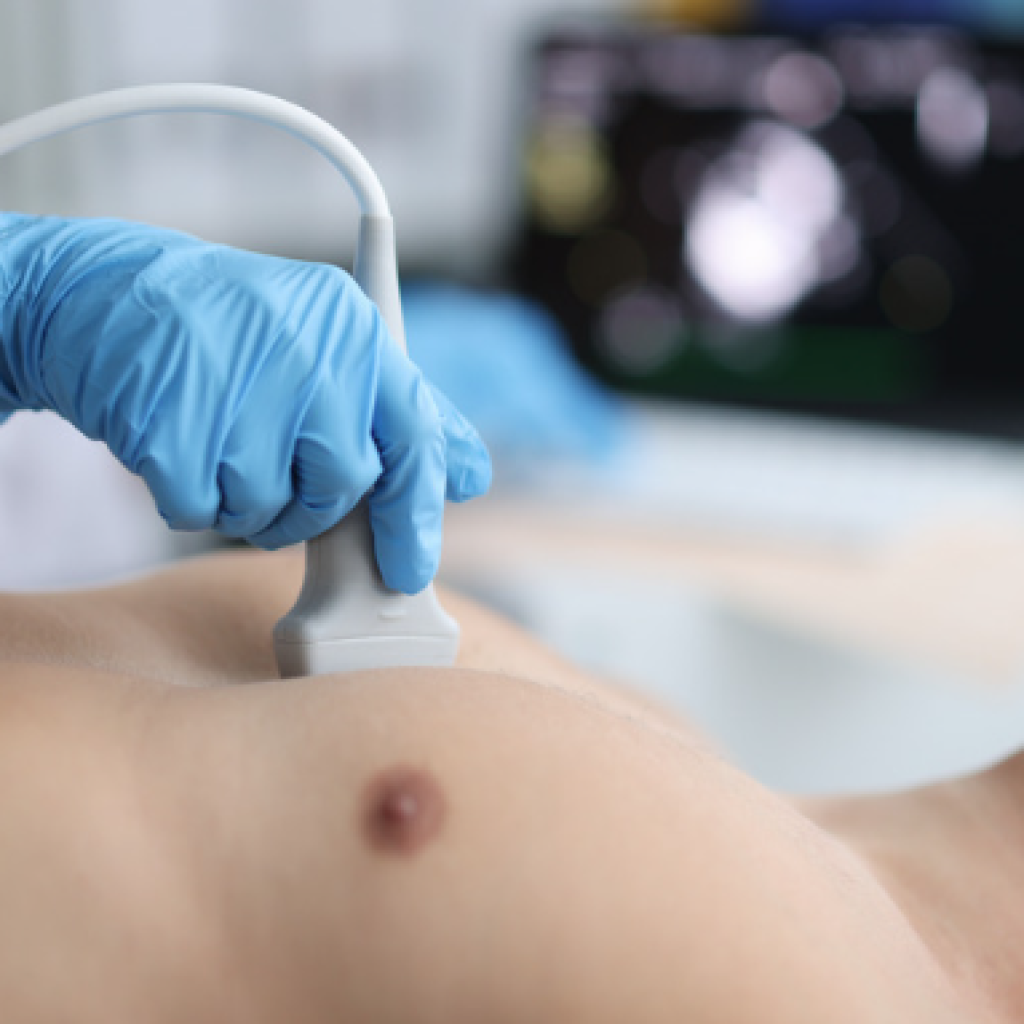Heart health is central to our overall well-being.
The heart is often seen as the engine that powers the human body, pumping oxygen-rich blood to every organ and tissue.
Cardiomyopathy is a disease that can seriously affect the heart's performance.
In this article, we'll explore the ins and outs of cardiomyopathy: its definition, causes, symptoms and available treatment options.
Let's find out how this vital muscle works and how to protect it. 🌟
Focus on cardiomyopathy and its risks 🩺
Cardiomyopathy may seem a complex medical term, but let's decipher it together. 🧐
"Cardio" refers to the heart and "myopathy" means muscle problems.
Basically, it's when the heart muscle is in trouble.
But why does this happen, and what are the types?
Understanding this condition is crucial, as it can affect anyone.
In this section, we take a deep dive into the world of the heart to better understand cardiomyopathy.
Get ready to become a mini heart expert! ❤️

Definition and classification
Cardiomyopathy is a disease of the heart muscle that can make the heart less able to pump blood efficiently to the rest of the body.
It can also disrupt normal heart rhythm.
This condition is not caused by clogged arteries, a condition more commonly associated with heart attacks.
There are several types of cardiomyopathies, classified according to their causes and characteristics:
1️⃣ Dilated cardiomyopathy : This is the most common type.
The main heart muscle, the left ventricle, is enlarged (dilated) and weakened, reducing its ability to pump blood.
2️⃣ Hypertrophic cardiomyopathy: In this type, the walls of the left ventricle become thick and rigid.
This can prevent the heart from filling with blood properly or pumping it efficiently.
3️⃣ Restrictive cardiomyopathy : This is the least common of the three main types.
The walls of the ventricles become rigid, but not necessarily thick, making it difficult for the heart to fill with blood.
There are also other less common types and certain cardiomyopathies that don't easily fit into these categories.
But knowing these three main classifications is a good starting point for understanding this complex condition. 🫀
Etiology and risk factors
In the case of cardiomyopathy, a multitude of factors can play a role in its onset. 🤔
Genetic factors : Some people inherit genes that make them more likely to develop cardiomyopathy.
If a family member has been diagnosed, it may be wise to discuss genetic testing with your doctor.
Concomitant diseases : Certain conditions, such as high blood pressure or thyroid disease, can increase the risk of cardiomyopathy.
Toxins and drugs: The abuse of alcohol or certain drugs, as well as certain medications used to treat other illnesses, can have a harmful effect on the heart muscle.
Infections : Infections, particularly viral ones, can damage the heart and lead to cardiomyopathy.
Other causes : Sometimes, factors such as pregnancy or too much iron in the body can contribute to the disease.
Keep in mind that while some of these risk factors are beyond our control, others, such as alcohol consumption or managing concomitant illnesses, can be managed with the help of a healthcare professional. 🧠
Cardiomyopathy symptoms and treatments
Cardiomyopathy, while often a silent disease at first, can over time reveal a series of symptoms that testify to its impact on the heart. 💔
These signs are the body's alerts, telling us that all is not well with our heart pump.
Some symptoms are subtle, others more obvious.
But all deserve special attention.
Recognizing these symptoms can not only help identify the disease, but also introduce appropriate treatment to slow its progression.
In this section, we explore the common and specific manifestations of cardiomyopathy.
Stay tuned and familiarize yourself with these warning signals. 🚨
Symptoms common to all types of cardiomyopathy
Cardiomyopathies, although distinct in origin and mechanism, share a common set of symptoms resulting from weakening or dysfunction of the heart muscle.
These symptoms are essential to recognize, as they are often the first indicators of a heart problem.
Fatigue : Sufferers generally feel tired or exhausted, even after sufficient rest.
The heart is not as efficient at pumping blood, which can lead to reduced tissue oxygenation.
Shortness of breath (dyspnea) : A simple activity, such as climbing stairs, can cause shortness of breath.
This is due to the heart's inability to respond to the increased demand for oxygen.
Edema : Swelling (especially of the ankles, feet and legs) is common. It results from an accumulation of fluid, a consequence of poor blood circulation.
Palpitations : Patients experience irregular, rapid or "fluttering" heartbeats in the chest.
Coughing or wheezing: These symptoms can occur when fluid builds up in the lungs due to heart failure. 🌬️

Symptoms specific to the type of cardiomyopathy and treatment
Each type of cardiomyopathy has unique characteristics that can influence the symptoms experienced by patients.
Although some manifestations may overlap, specific signs are often associated with each type.
1️⃣ Dilated cardiomyopathy :
Persistent cough: especially a nocturnal cough that can disrupt sleep.
Rapid weight gain: due to water retention.
Dizziness or fainting: due to arrhythmias or poor blood perfusion.
2️⃣ Hypertrophic cardiomyopathy:
Chest pain: This may be acute and may be felt during physical exercise.
Dizziness or syncope: especially after physical activity.
Heart murmur: a sound heard when the heart is auscultated by a doctor.
3️⃣ Restrictive cardiomyopathy :
Early feeling of fullness: disappearance of hunger even after eating a small quantity of food.
Abdominal discomfort: due to fluid accumulation.
Difficulty concentrating or confusion: caused by reduced blood supply to the brain.
These specific symptoms, combined with the common signs of cardiomyopathy, can help healthcare professionals determine the precise type of cardiomyopathy and guide them towards the best treatment plan.
If you feel any of these symptoms, it's essential to consult a specialist as soon as possible.
Treatment options
Cardiomyopathy treatments are designed to manage symptoms, slow disease progression and reduce the risk of complications.
Approaches vary according to the specific type of cardiomyopathy.
1️⃣Dilated cardiomyopathy :
Medications: Diuretics to reduce swelling, beta-blockers to improve heart function, and ACE inhibitors to treat hypertension and heart failure.
Devices : A defibrillator or pacemaker can be implanted to regulate heart rhythm.
Surgery: In severe cases, heart transplantation may be considered. 🔄
2️⃣ Hypertrophic cardiomyopathy:
Medications: Beta-blockers or calcium antagonists to relax the heart and reduce its force of contraction. 💊
Non-surgical interventions: Septal alcoholization to reduce the thickness of the heart muscle.
Surgery: Septal myectomy to remove part of the thickened heart muscle.
3️⃣ Restrictive cardiomyopathy :
Medication: Diuretics to reduce edema and drugs to regulate heart rate.
Devices: Pacemaker or defibrillator for rhythm disorders.
Specific therapies: In some cases, chemotherapy or radiotherapy is required, particularly if the cardiomyopathy is caused by amyloidosis or other conditions. 🌡️
It's crucial for people with cardiomyopathy to work closely with their cardiologist to develop a personalized treatment plan.
Proactive, informed management is the key to living with this condition. 🩺
Cardiomyopathy, although a complex and potentially serious disease, can be managed with thorough understanding, early detection and appropriate treatment.
As we have seen, there are different types of cardiomyopathy, each with its own challenges.
However, awareness and education are our best weapons.
By understanding the symptoms and listening to our body, we can take steps to ensure the health and longevity of our heart.
If you or a loved one have symptoms or risk factors associated with cardiomyopathy, don't hesitate to consult a healthcare professional.
Your heart is precious; take care of it with the attention and diligence it deserves. 🔍
Our team of qualified professionals will help you manage your symptoms and provide you with the appropriate care to ensure optimal heart health.
For more advice, book an appointment at one of our four clinics in Mascouche,Laval,Piedmont andVaudreuil-Dorion. 🏢





